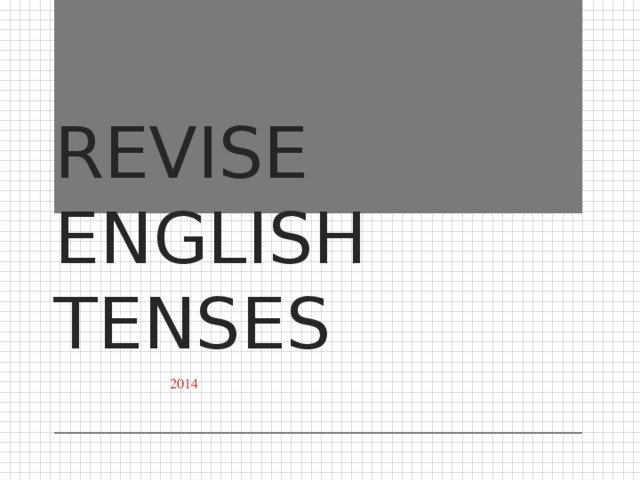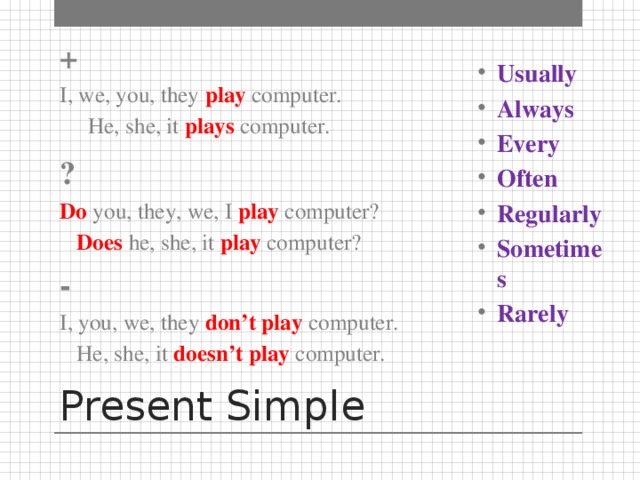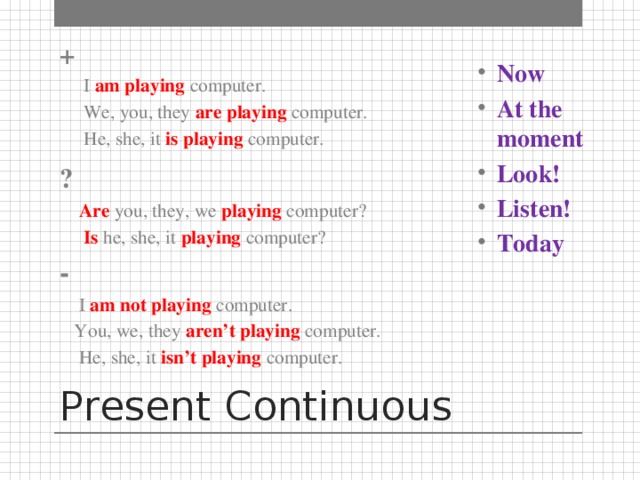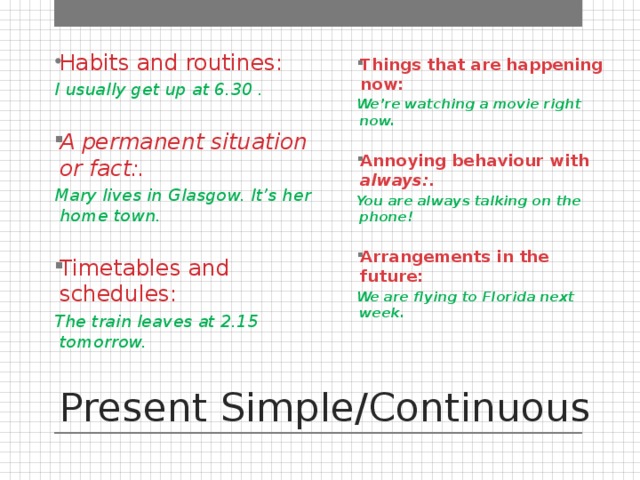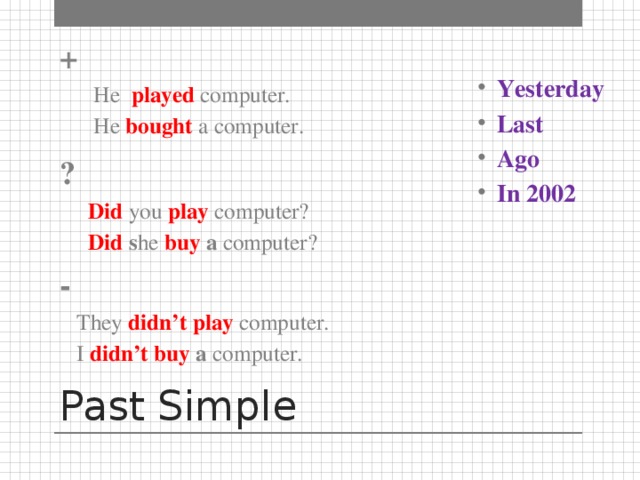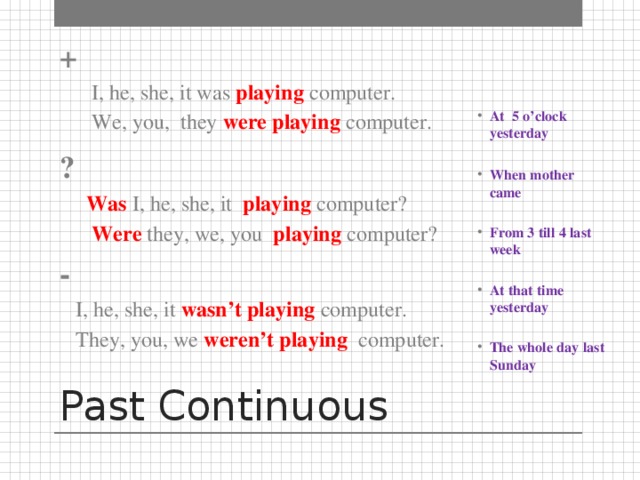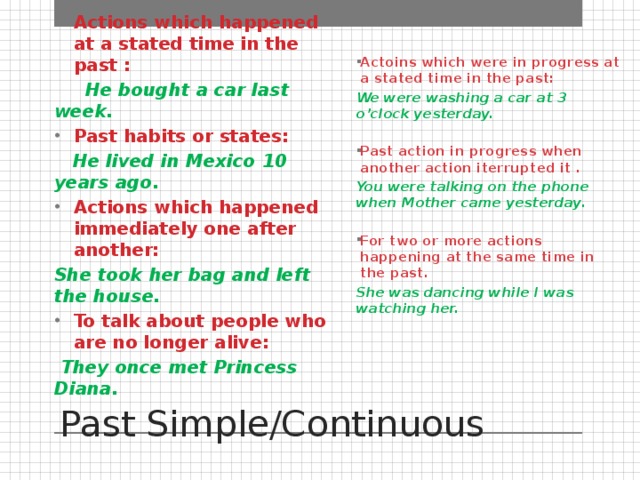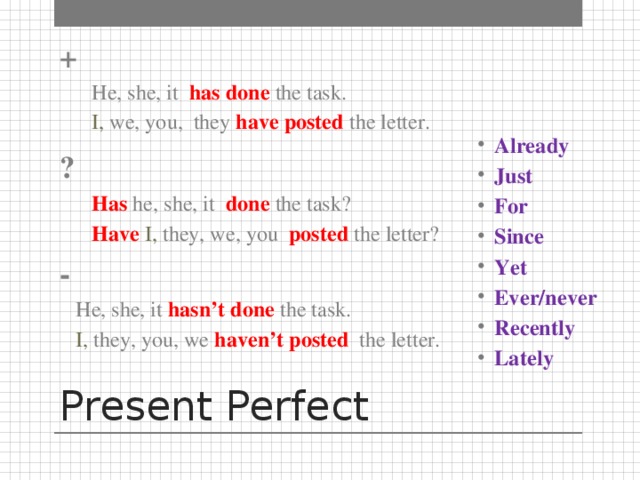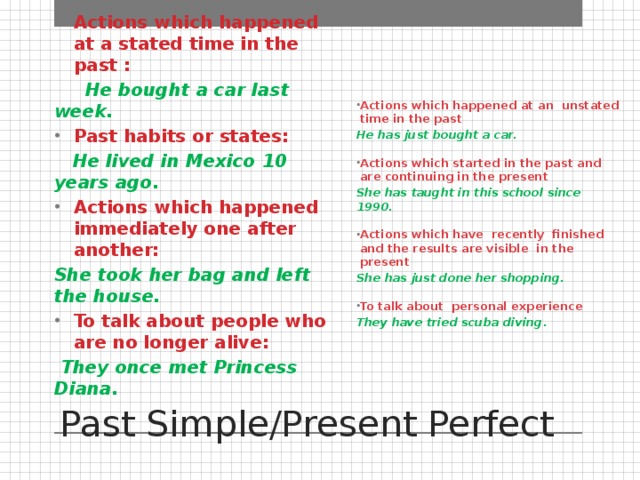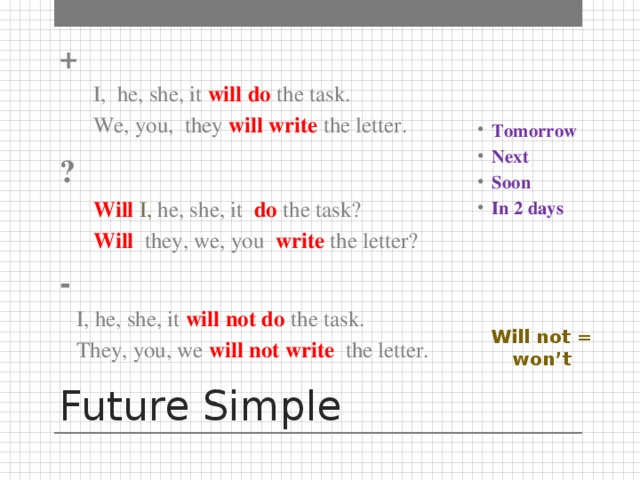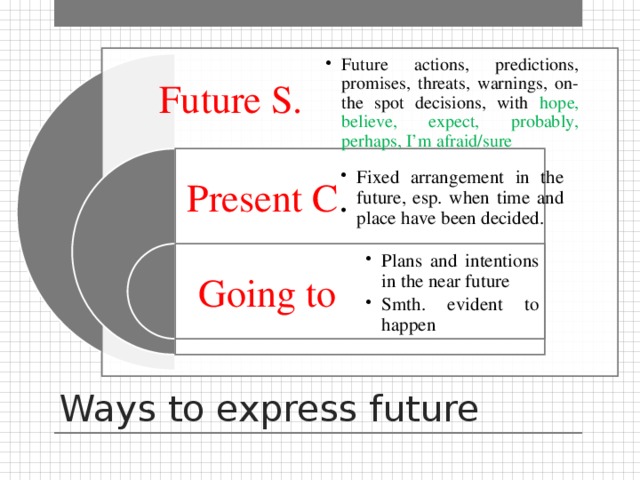Данная презентация предназначена для введения и повторения грамматического материала на уроках английского языка с 5 по 9 класс. Информация структурирована и достпуна для понимания. В презентации даны примеры утвердительных, вопросительных и отрицательных предложений в различных грамматических времах. Даны основные правила уотребления времен в сранении, например Present Simple vs Present Continuous.
Создайте Ваш сайт учителя Видеоуроки Олимпиады Вебинары для учителей
Презентация по теме "Revise English Tenses"
Вы уже знаете о суперспособностях современного учителя?
Тратить минимум сил на подготовку и проведение уроков.
Быстро и объективно проверять знания учащихся.
Сделать изучение нового материала максимально понятным.
Избавить себя от подбора заданий и их проверки после уроков.
Наладить дисциплину на своих уроках.
Получить возможность работать творчески.
Просмотр содержимого документа
«презентация по теме "Revise English Tenses" »
Похожие файлы
Полезное для учителя
Распродажа видеоуроков!
1860 руб.
2660 руб.
1940 руб.
2770 руб.
1880 руб.
2690 руб.
1860 руб.
2660 руб.
ПОЛУЧИТЕ СВИДЕТЕЛЬСТВО МГНОВЕННО
* Свидетельство о публикации выдается БЕСПЛАТНО, СРАЗУ же после добавления Вами Вашей работы на сайт
Удобный поиск материалов для учителей
Проверка свидетельства
